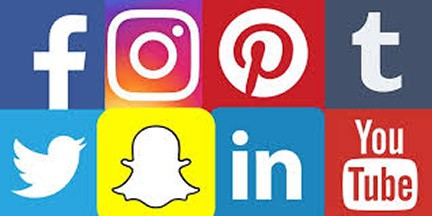
Humans disagree, discuss, and learn. Social media humans troll, dislike and scroll down

Last week, someone close to me called out my disloyalty to the motherland. His list of contentions was topped with a caveat. My attitude, he said, reeked of insensitivity and irresponsibility towards my country.
He told me, rather vociferously, that having left Pakistan a few years ago I have lost the primordial connection with my country; the one that permanently glues our loyalties to the home country and calls for sentimental rehashing of everything patriotic. He cautioned me to be more mindful of others’ sentiments.
What ticked him off was a Facebook video I had shared on my timeline -- a clip from the funeral of an Indian soldier who died in the Pulwama attack. The video showed his young widow kissing his coffin saying, "I love you," one last time.
He didn’t object to the fact that I had shared an emotional video of the enemy. He took issues with the disproportionate number of posts I dedicated to Pakistani soldiers. "When was the last time you shared a post from a Pakistani soldier’s funeral?" or "When was the last time you shared a video or article about what soldiers do to Kashmiris?" If, I was told, I had shared similar videos from both sides, I could’ve justified my post. Since I didn’t, I exposed my anti-national bias. He continued and criticised my training as a journalist who failed to show balance on social media by showing partiality for one side while ignoring the other.
My defence was simple -- the only thing that war brings home are coffins of young men. I shared the video as a gesture to show the ‘other’ side. Sharing it was a response to hundreds of videos I’ve seen over the years glamourising martyrdom of Muslim soldiers; celebrating military prowess, and the human cost of war only as a side note.
Since my timeline is overwhelmingly Pakistani, obviously, I thought it’d give them a perspective. Also, since I am a Pakistani, I shouldn’t have to exhibit my patriotism. My point, there is no glory in a coffin covered with flag, no matter its colour.
He wasn’t buying my "neo-liberal crap that sees patriotism as a vice" (his words). Since I’m not affiliated with any organisation, media, or political group, I find it liberating to express myself on social media. Instead of posting personal stories, it is my go-to source for news diet and trending topics.
Journalism schools are hyper-focused on social media as an intrinsic part of brand building. Not just the final product but the whole process must be out there: the work behind the work and the response to the work. Many professional journalists campaign for stories way ahead in time. The idea is to be proactive in a competitive market. But the candidness comes with a price. Nobody wants a journalist to praise the very people they’re supposed to hold accountable. Restrain is expected. Non-affiliation allows you that freedom, something I enjoy on my timeline.
The banter also got me thinking about my social media personae, seen only through my posts and hashtags. Every time I quote a writer, share a story, or like a video, I am cementing another layer on the wall that separates me from me; I’m consciously limiting myself to likes and hashtags. Since I don’t share personal posts and pictures, those who don’t frequently meet me assess my political inclinations or parental philosophy from my social media. I fit into that screen everyone carries around.
On my last visit to Lahore, a cousin took a jab at my pro-minority posts. Another told me she was offended by my criticism of US-returned Pakistanis treating their birth cities as slums. A friend drops angry face on anything related to Pashtun movement. Since I meet them once a year, they objectify me into categories. Real humans disagree, discuss, and learn. Social media humans troll, dislike and scroll down. And when was the last time people agreed on religion and nationalism?
Real life patriotism is challenging -- I am a law-abiding citizen, I pay taxes, I vote etc -- but social media patriotism is another story. If I’m not patriotic on social media, I’m not cultivating in my brand smartly. I’m either a "Youthia" or a "Patwari"; I’m either anti-state or pro-enemy (it’s not the same thing!).
Inspired by our neighbours, we’re on track to an overactive surveillance keeping our ‘impure’ thoughts in check. FIA is introducing a partner agency to monitor extremist narrative on social media, taking it upon themselves to define ‘extremism’ for you. Be careful, or prepare paperwork for asylum in Canada!
When news anchors and TV hosts start wearing military uniforms, that’s when you panic. Social media allows a freedom that mainstream media controls. But I am glad I was confronted. It kept my confidence in check, and my hopes of offering perspective. Sharing anything on social media, we put ourselves in a vulnerable position including decreasing followers (sad face emoji). And friends vanishing from the friends’ list.
Writer and thinker Albert Camus wrote to his German friend who had accused him of not loving his country enough. Camus retorted by saying that loving one’s country and loving justice could be simultaneous. "There are many things that cannot be excused. And I should like to be able to love my country and still love justice. I don’t want any greatness for it, particularly a greatness born of blood and falsehood."
My friends will disagree. My social media is my footprint, and the way I use it should be a personal choice not controlled by people around me or those in charge. It will probably soon be replaced by something more powerful, but if the freedom of expression is snubbed, any such tool is futile.